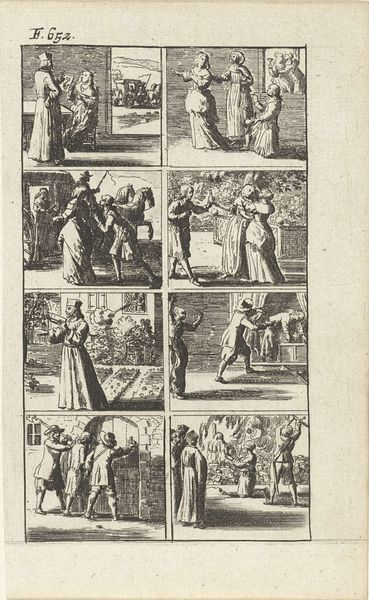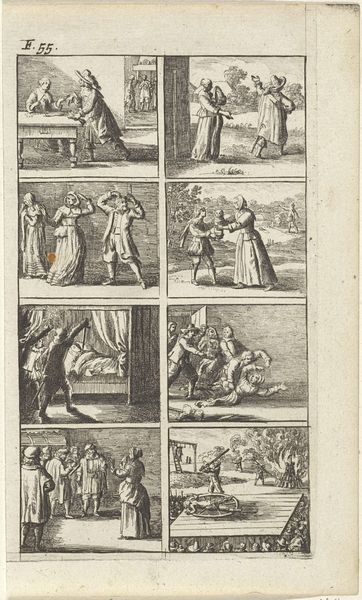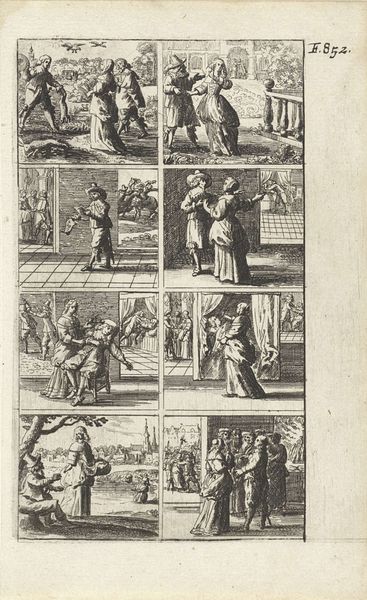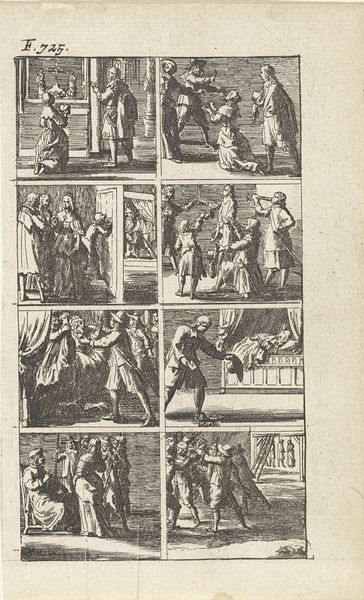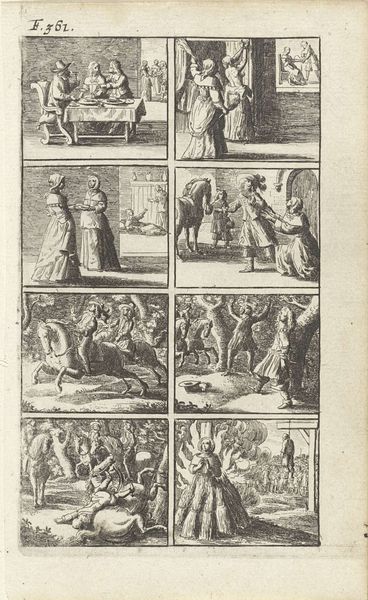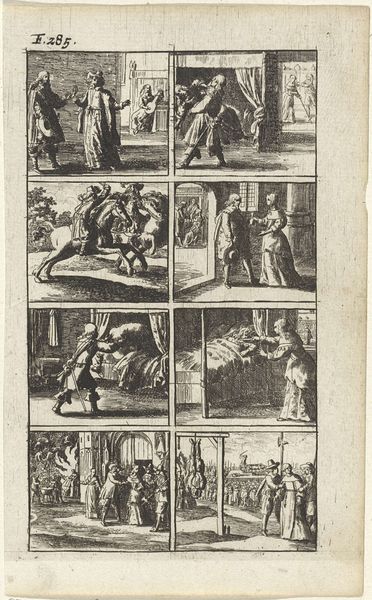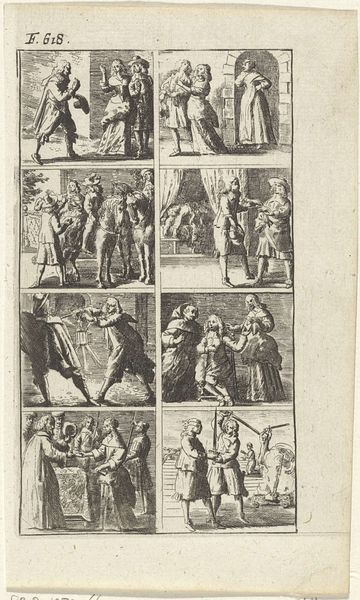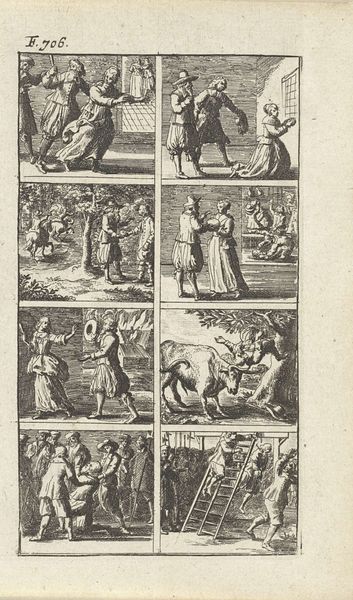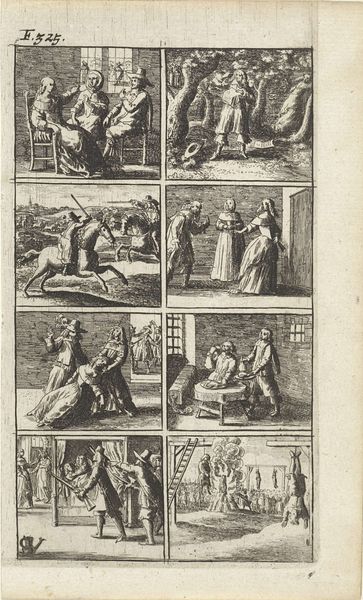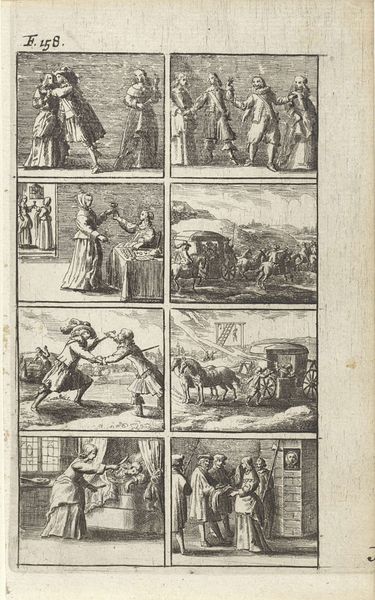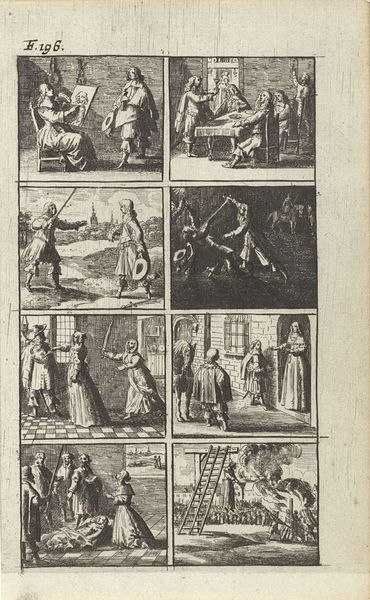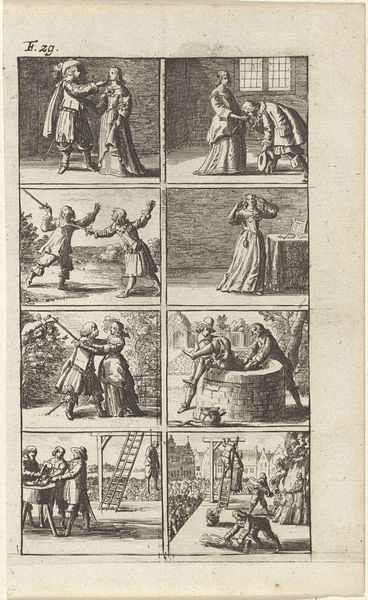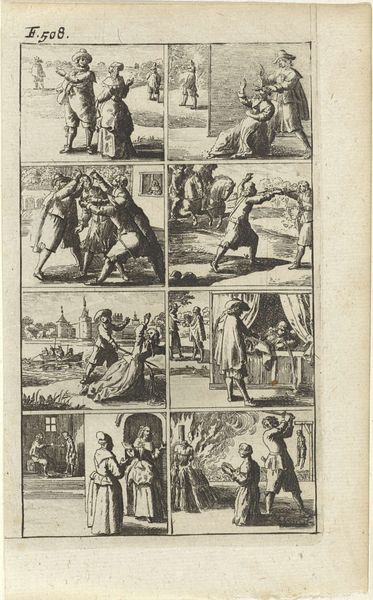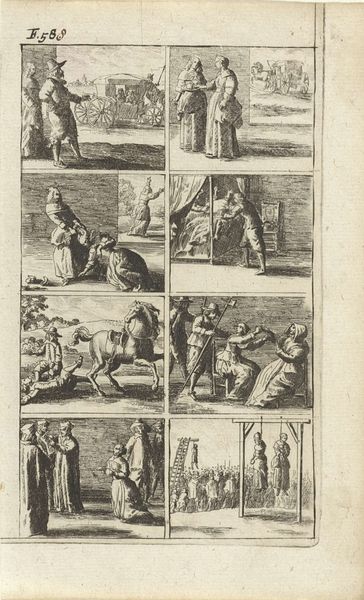
Verhaal met voorstellingen van moord en doodstraf (F. 568.) 1667
0:00
0:00
abrahamdirckszsantvoort
Rijksmuseum
print, etching, engraving
#
narrative-art
#
baroque
# print
#
etching
#
pencil sketch
#
pen-ink sketch
#
genre-painting
#
history-painting
#
engraving
Dimensions: height 155 mm, width 94 mm
Copyright: Rijks Museum: Open Domain
Editor: This etching, “Verhaal met voorstellingen van moord en doodstraf,” created in 1667 by Abraham Dircksz. Santvoort, is intense. It depicts various scenes of murder and execution, each framed like a window into a brutal reality. The texture of the printmaking adds a raw, unsettling edge. What do you make of this work? Curator: It's fascinating, isn't it? It reminds me of those old moralizing prints, like visual cautionary tales. The division into scenes almost gives it a comic strip feel, albeit a very dark one. Each panel offers a snapshot—a betrayal, a judgment, an execution. Given the period, the Baroque love for drama is evident, even in such a macabre subject. Santvoort isn't just depicting violence; he is, perhaps, offering a commentary on justice, morality, and the fragility of life. Makes you wonder what stories lurk behind those tiny, carefully etched lines, doesn’t it? Which scene pulls you in the most, or disturbs you? Editor: Definitely the hanging – that feels like the ultimate public spectacle. It makes me consider who the work was for and what its intention might be. Was it meant to warn people or titillate them? Curator: Both, maybe! Early printmaking had a double life: accessible information *and* entertainment. Justice in the 17th century was very much a public performance. This print acts like a dark newspaper—graphic and judgmental. We, as viewers centuries later, must confront our own unease with such blunt depictions, but also the enduring power of art to make us consider societal anxieties. It almost feels too vivid for its own good. Editor: I didn’t think about it like a dark newspaper, that's really interesting. I’ll definitely look at etchings with new eyes now. Thanks! Curator: Absolutely. And isn't it wild to think this "news" hangs in a museum now? Makes you ponder how perceptions shift through time, doesn't it?
Comments
No comments
Be the first to comment and join the conversation on the ultimate creative platform.
